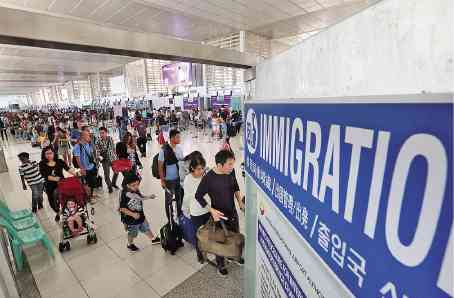House inquiry sought on ‘frequently changing’ health protocols for int’l arrivals
MANILA, Philippines — An inquiry into the “frequently changing” testing and quarantine protocols issued by the Inter-Agency Task Force for the Management of Emerging Infectious Diseases (IATF) for individuals allowed to enter the country is being pushed in the House of Representatives.
Under House Resolution No. 1650 filed by Kabayan party-list Rep. Ron Salo, the Committee on Health and Committee on Overseas Workers Affairs are urged to jointly conduct the said inquiry.
“The frequently changing testing and quarantine protocols for all persons allowed entry into the Philippines has caused confusion and stress to returning Filipinos, especially to OFWs who are returning for emergency reasons, such as terminal illness or death of a family member,” Salo said in the resolution.
“All this confusion on the protocols is compounded by the unnecessary stress caused by voluminous declarations and documents that need to be signed by the returning Filipinos, particularly OFWs,” he added.
Salo said there is a need to clarify and institute streamlined and uniform protocols that affect all persons allowed entry into the country.
Article continues after this advertisementThe procedures should be simple and facilitative of the right to travel while ensuring strict adherence to minimum health standards and protocols, Salo said.
Article continues after this advertisementIn the resolution, Salo said as early as April 2020, many OFWs already raised their concern over the conflicting statements from the Department of Foreign Affairs (DFA) and the Overseas Workers Welfare Administration (OWWA) on the testing and quarantine protocol required for returning OFWs.
The lawmaker noted that in December 2020, the IATF issued a resolution that renders mandatory a 14-day quarantine period in a facility for all persons allowed entry into the country.
Salo then said that in January this year, the IATF issued another resolution which no longer requires the 14-day quarantine period in a facility should the person’s RT-PCR test–to be administered on the fifth day from the date of arrival—yield a negative result.
“Concerns were raised regarding the exemption of government personnel on official business from the testing and quarantine protocols of local government units, thus negatively affecting public perception as to the uniform application of health protocols,” Salo said.
